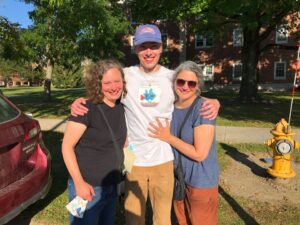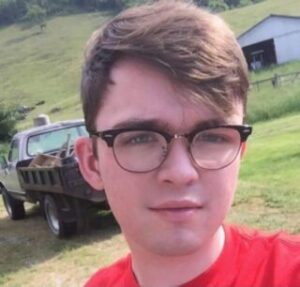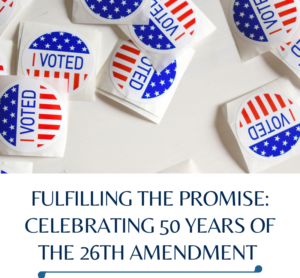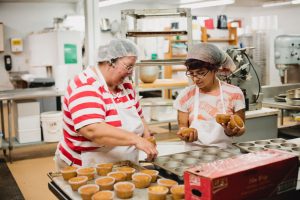
Catch the Wind: A Valentine to Rural LGBTQ Youth
Kim Phinney, co-founder of The Rural Youth Catalyst Project, shares a story of family and finding love. This essay is part of the Love Notes to LGBTQ rural youth series. Learn how to send your own.

Kim Phinney, co-founder of The Rural Youth Catalyst Project, shares a story of family and finding love. This essay is part of the Love Notes to LGBTQ rural youth series. Learn how to send your own.

Rural young people may be eligible for up to $1,500 if they file their tax returns because of EITC tax credit expansions. Learn more and how to help.

Youth voting rights experts share five ways you can support the youth vote — and help fulfill the promise of the 26th Amendment.

In recognition of the 50th Anniversary of the 26th Amendment as another landmark piece of Civil Rights legislation, the Rural Youth Catalyst Project is excited to partner with CIRCLE’s Youth Expertise Series: Fulfilling the Promise to offer the voices and perspectives of rural young people. This week we bring you the voice of Garrett Blaize.

Kalispell, MT high school senior Opal Bespaw believes every young person should be excited and empowered to vote. But how do we foster this excitement? By taking purposeful steps to reach out to young voters and involving schools and the media. Register for our livestream to talk more about how to get young people voting in rural places.

Frankie Edwards reflects on voting and making sense of your own democratic power in rural America as we approach the 50th anniversary of the 26th amendment, which lowered the voting age from 21 to 18.

The passage of youth voting rights was a critical piece of civil rights legislation. Join us for an intergenerational panel discussion with rural leaders as we reflect on the historical significance and current fight to fulfill the promise of the 26th Amendment.

By The Rural Youth Catalyst Project Today and every day, we honor and celebrate all the courageous LGBTQ young people

An estimated nearly 5 million young people ages 19-24 will benefit from the permanent expansion of EITC and 21 percent of workers without children in rural areas will benefit from the EITC expansion, compared to 17 percent of those in metro areas. An extra $1500 matters; for rural and Native young people, ETIC provides an equitable pipeline to economic security. It can help young adults gain safe and stable housing, offset transportation costs, buy food, or pay student loans.

In my family and community, we care for one another and that is just a part of life. There is no such thing as individuality in my family. No matter what I do in life, it would always circle back to my family. My actions, successes, and failures will always be not only a reflection of myself but of where I come from. Everyone that had a hand in raising me, taught me what I needed to know to ensure that I was brought up in a way of wanting to contribute to something that was bigger than myself.